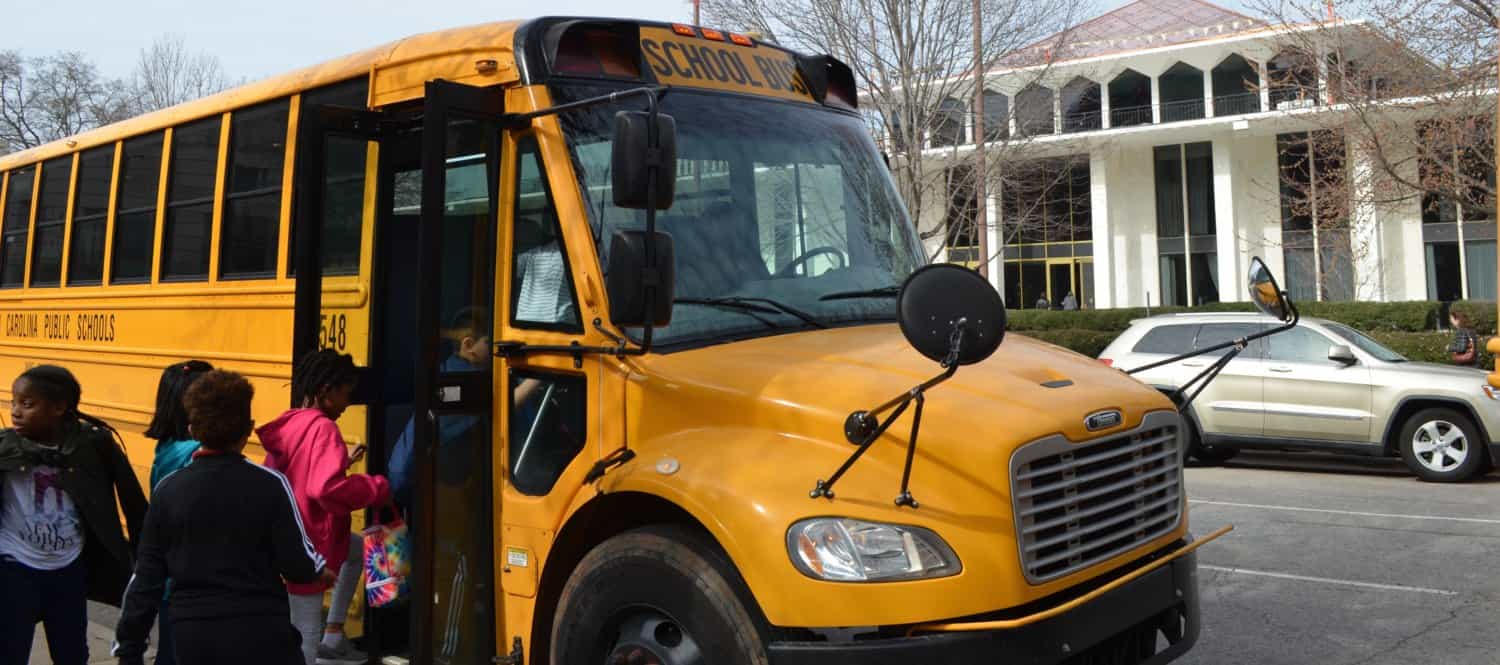For years, education advocacy groups and legislators have tried to change North Carolina’s uniquely strict law that mandates when school districts begin and end.
A report from the Program Evaluation Division of the General Assembly released Monday, however, makes no recommendation to change the school calendar law — with an exception for low-performing schools and districts.
The report addresses the conflict between state government, parents, teachers, and the tourism and travel industries. School being out for the month of August, the report says, is important for tourism and travel, whereas educators would prefer the semester start earlier so that schools could be done with exams before the holidays and align with community college calendars.
“The disagreement among stakeholders about when North Carolina should start and end the school year can not be reconciled,” the report’s recommendation reads. “This conflict poses a dilemma because no choice can satisfy all stakeholders and any decision will be perceived as favoring the interests of some stakeholders over others.”
Right now, traditional-calendar schools must start no sooner than the Monday closest to August 26 and finish no later than the Friday closest to June 11.
For schools and districts deemed as low-performing by the State Board of Education, the report says calendar flexibility could increase student performance and help with summer learning loss. The report suggests that the Department of Public Instruction evaluate whether flexibility actually does help in struggling schools.
Many lawmakers are filing school calendar flexibility bills for their specific counties — but at least one House bill is trying to modify the law statewide.
Rep. Kevin Corbin, R-Cherokee, a primary sponsor of the bill, said giving local governments authority to decide what’s best is key.
“If you look at it strictly from an education standpoint, I firmly believe, and I think every superintendent that I’ve spoken to so far believes, that that flexibility is a positive thing for education,” Corbin said.
Terry Stoops, the director of education studies at the right-leaning John Locke Foundation said he didn’t see why flexibility shouldn’t be extended to all school districts in the state.
“If it’s a tool that can be used by low-performing schools and districts to raise student performance, then surely it can be used to do the same in other schools and school districts,” Stoops said.
The John Locke Foundation is part of a coalition called L.O.C.A.L. (standing for Let Our Calendar Authority be Local), along with seven other organizations that cross ideological lines and interests, including N.C. FreedomWorks, the N.C. Justice Center, the N.C. School Boards Association, Professional Educators of NC, the N.C. Association of School Administrators, N.C. PTA, and the N.C. Association of Educators.
Leanne Winner, the director of governmental relations at the N.C. School Boards Association, said the coalition remains in support of calendar revision for all schools. She said long breaks in the summer affect all students.
Winner said there are “a litany” of reasons why that revision is needed — from availability of community college courses to high school students, to missed revenue from sports events held before the start of the school year.
Winner noted that low-performing schools and districts already have a path to access calendar flexibility through the restart model application process. Restart schools are low-performing schools that have applied to have charter-like flexibility to meet the specific needs of their students and community.
Either way, she said, individual schools changing their calendars without a district-wide change can be problematic.
“Just having one school out of a handful of schools may just not be a doable situation,” Winner said. She said transportation issues and parents wanting their children’s schedules to align can cause issues.
Matt Ellinwood, director of the Education and Law project at the N.C. Justice Center, said he was pleased that the report acknowledged the disproportionate negative impacts summer learning loss has on low-income students and schools.
“I think that our calendar law sort of hampers the ability for districts to meet those students where they are,” Ellinwood said. “The lower-income students are frequently falling further and further behind during those long breaks.”
But Ellinwood said there are undoubtedly low-performing students that would be missed by the recommended change — who are in high-performing schools or districts and are regressing during summer months. He said giving school districts statewide, which have different weather and academic needs, the authority to set their own calendar makes the most sense.
“If we’re saying that there’s no school calendar law that could work for everybody, that does suggest that flexibility is needed,” Ellinwood said. “We’re saying there’s no ‘one-size-fits-all’ approach that we can agree on, which to me sort of screams that we need increased flexibility.”
Editor’s Note: This article was corrected on February 20, 2017.



